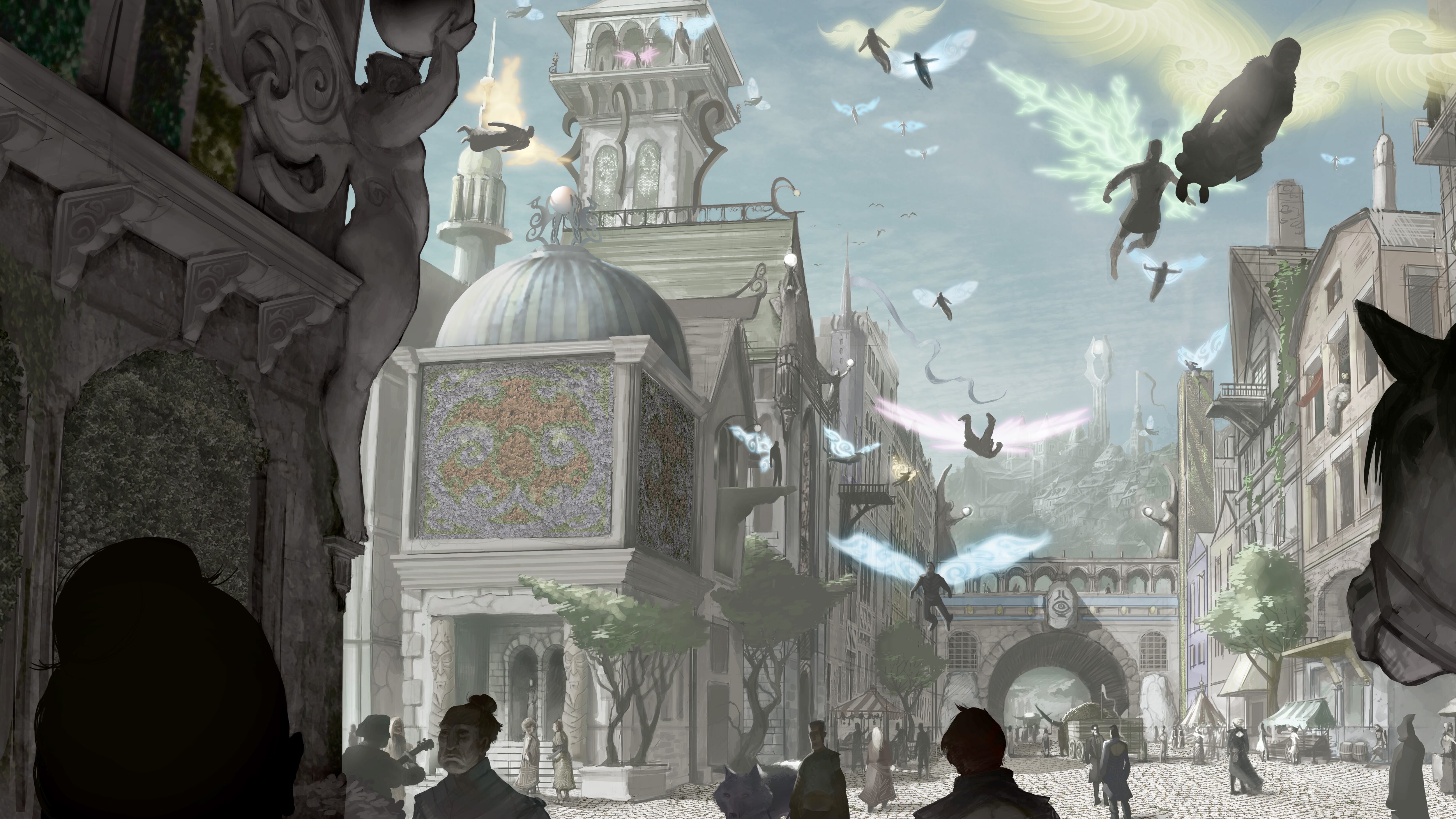When Gregg Hale’s 5-year-old got interested in Tinker Bell and all things fae more than a decade ago, Hale leaned in. Way in. Hale invented a fairy character that began writing letters to his child, buried a fairy chest in his Northeast Portland backyard, and even pretended a bronze door in a park was a portal to the fairy world.
This went on for a few years and has formed the foundation of a fantasy world called Emerald Anvil, a multiplatform storyworld that began its rollout this spring. There’s a podcast, a board game, a young adult novel, and an interactive NFT storytelling game—all of which are possible entry points to the fantasy world that Hale created.
If all of this seems like an extreme level of commitment for even the most overachieving, creative parent, it helps to understand that Hale is a horror filmmaking icon.
Twenty-five years ago this summer, he co-produced the indie-horror classic The Blair Witch Project. It raked in about $250 million at the box office, pioneered the “found footage” style of filmmaking, and temporarily ruined camping for countless viewers. Hale has lived in Portland with his wife and two children, now in high school, for 15 years.
Hale and his creative partner, Blair Witch director Eduardo Sánchez, are now the team behind Emerald Anvil. The two of them have worked together since film school, mostly on television projects recently. It was Sánchez who pushed Hale to finally commit to his passion project about three years ago.
“Ed was like, ‘You can’t stop thinking about this idea,’” Hale says. “‘Let’s just treat it like a real project.’”
They built a pitch deck and raised money at a grassroots level, mostly through friends and family, indie-movie style. Two of their partners are veteran Hollywood producers Mark Ordesky (The Lord of the Rings trilogy) and Jane Fleming (The Quest).
The pivot from horror filmmaking to fantasy world builder has been a natural one for Hale. He knew he wanted to be a filmmaker at age 11 when he saw Star Wars in a theater on opening weekend. Shortly thereafter, he got super into playing Dungeons & Dragons and quickly transitioned from playing premade modules to making his own worlds. Those are the “holy grails” of the fantasy world, Hale says, but he designed Emerald Anvil to be at that level of multiplatform world building.
“I don’t realistically expect it to be Star Wars or Harry Potter, but you want it to mean something to people,” he says. “I really want this to connect with people, especially, like, some 12-year-old kid.”
Elements of The Blair Witch Project weave through Emerald Anvil, which is a fantasy world of fairylike beings battling for control of the planet Hada and the fate of its human inhabitants.
For instance, Hale blurs fact and fiction with the origin story of the board game, Glim, which is a dice-based tabletop board game set in the Hada universe. He created Glim with the help of local game designers Jenn Ellis and Keith Baker of Twogether Studios. Baker is well known for designing the Dungeons & Dragons world Eberron. (“In the geek gaming space, Keith is the celebrity of the two of us,” Ellis says.)
Glim is designed to be an artifact from Hada with an elaborate backstory of Ellis and Baker finding fairy puppets and handwritten scrolls in a chest at an estate sale. A whole film crew went to Ellis and Baker’s home to shoot the Glim promotional video.
“The videos are definitely some of that movie magic that Gregg brings,” Ellis says. “I never thought when I was getting vertigo at Cinemagic on Hawthorne watching The Blair Witch Project 20 years ago that one day they’d be in our living room making a movie.”
The Emerald Anvil book, called Journey to Hada, came out May 21. The first season of the podcast wraps up June 11. The Glim Kickstarter campaign has about a week to go and is over halfway to its $24,450 goal. The world that was once contained in Hale’s imagination and backyard is now in the world for real. It feels…weirdly anticlimactic.
“You put something out there and you have expectations about what it’s going to do or achieve or mean to people or whatever,” Hale says. “You’re really going on, this is going to sound cheesy, but your heart.”

